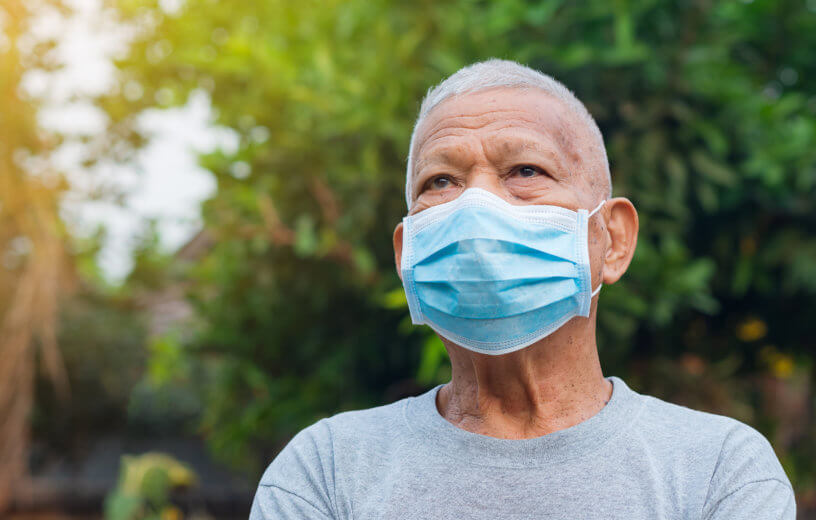GALVESTON, Texas — New research out of Texas reports SARS-CoV-2, the virus causing COVID-19, can indeed infect the testicles. Scientists at the University of Texas say their work may help explain why some COVID-infected men complain of testicular pain or display lower-than-normal testosterone levels during their illness.
These findings are sure to make men the world over cross their legs in concern. Beyond that, however, study authors believe getting a better sense of how COVID-19 impacts the testicles holds major implications for men’s health moving forward. For instance, some autopsies performed on deceased COVID-19 patients reveal significant testicular disruption at the cellular level and traces of immune cells.
“Given the magnitude of the COVID-19 pandemic, it is critical to investigate how this disease can impact the testes, and the potential consequences for disease severity, reproductive health, and sexual transmission,” says lead study author Dr. Rafael Kroon Campos, a postdoctoral fellow at UTMB, in a university release.
SARS-CoV-2 is not the first virus to attack the testicles
Dr. Shannan Rossi’s lab at UTMB is no stranger to the subject of viruses and testicles. Researchers there had already spent years studying the ability of the mosquito-borne Zika virus to infect testicles. Once COVID-19 emerged, they set out to see if SARS-CoV-2 could do the same. Hamsters have been used throughout the pandemic to model COVID-19 in humans because they usually develop similar symptoms.
Researchers detected SARS-CoV-2 in the testicles of all studied hamsters during the first week of infection before slowly tapering off. The Texas team theorizes this is a likely representation of what may happen among human males experiencing mild-to-moderate COVID-19 symptoms.
“These findings are the first step in understanding how COVID-19 impacts the male genital tract and potentially men’s reproductive health,” explains Dr. Rossi, an associate professor in the Departments of Pathology and Microbiology & Immunology. “We have much more to do before we have the full picture. Moving forward, we will investigate ways to blunt this impact, including using antivirals, antibody therapies and vaccines.”
Study authors conclude that future studies focusing on COVID-19 and testicles should consider factors like pre-existing health conditions (obesity, diabetes) and SARS-CoV-2 variants.
The study appears in the journal Microorganisms.

My RSS came after both Maderna injections..feb3, then Mar 3, then RSS July. RSS was treated with oxycycline and relief was a few days.
Then shortness of breath, which I had with RSS, led me to ER. Radiologyreported P E and DVT (in both legs, and in both lungs. 5day hospital stay, followed by warfarin with INR reading of 4.3 was brought down to 2.1. Switched to Xeralto, and radiology in October….no visual PE.